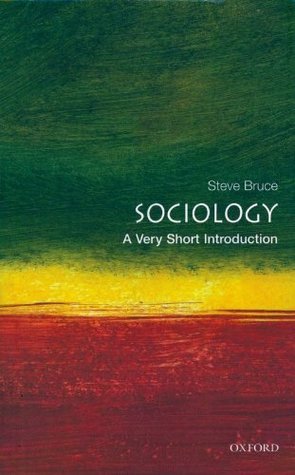What do you think?
Rate this book


128 pages, Paperback
First published January 1, 1999
Science thrives on the free exchange of ideas and on intellectual competition.
we could describe sociology as the study of social structures and social institutions.
culture does for humans what instinctual and environmental constraints do for other species
we make our own fate but not in the circumstances of our own choosing.
God revealed himself in forms appropriate to the social evolution of different
... Such conspiracy thinking is actually a misdirected partial understanding of social causation. It rightly supposes that there is more to life than meets the eye and reflects the sense of the powerless that there is an order that is not immediately observable to the untrained eye. But then it reverts to the idea that things occur because someone wanted them like that. It fails to understand unintended consequences and the supra-individual causes of action.